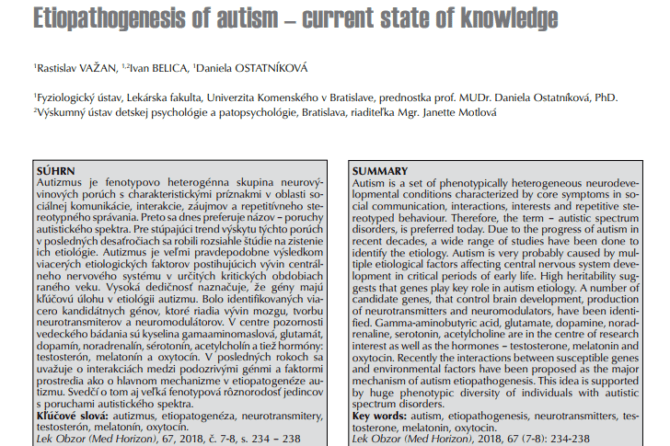
AUTHORS: Važan, R., Belica, I., Ostatníková, D.
ABSTRACT: Autism is a set of phenotypically heterogeneous neurodevelopmental conditions characterized by core symptoms in social communication, interactions, interests and repetitive stereotyped behaviour. Therefore, the term – autistic spectrum disorders, is preferred today. Due to the progress of autism in recent decades, a wide range of studies have been done to identify the etiology. Autism is very probably caused by multiple etiological factors affecting central nervous system development in critical periods of early life. High heritability suggests that genes play key role in autism etiology. A number of candidate genes, that control brain development, production of neurotransmitters and neuromodulators, have been identified. Gamma-aminobutyric acid, glutamate, dopamine, noradrenaline, serotonin, acetylcholine are in the centre of research interest as well as the hormones – testosterone, melatonin and oxytocin. Recently the interactions between susceptible genes and environmental factors have been proposed as the major
mechanism of autism etiopathogenesis. This idea is supported by huge phenotypic diversity of individuals with autistic spectrum disorders.
Lekársky obzor. – Roč. 67, č. 7-8 (2018), s. 234-238. – ISSN (print) 0457-4214


